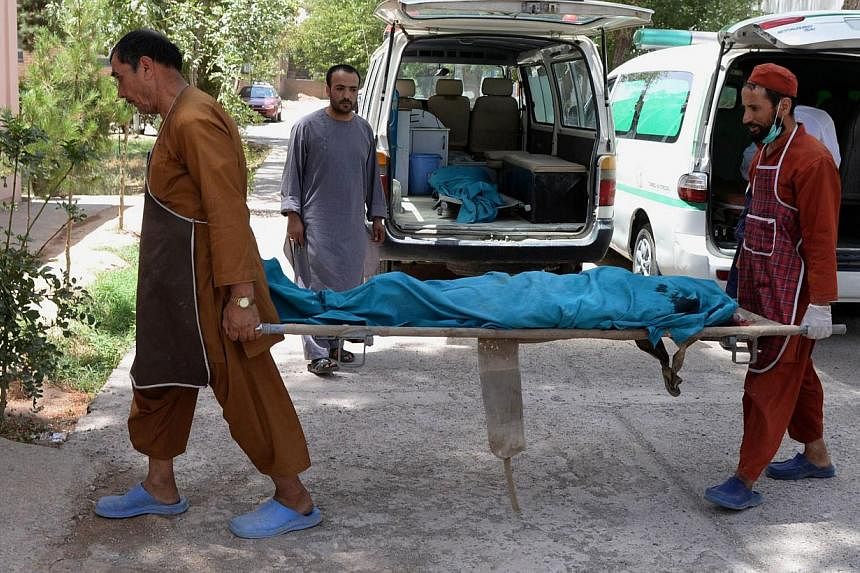UNITED NATIONS, United States (AFP) - Attacks on aid workers reached a new peak in 2013, with 155 relief staff killed, and this year is shaping up as equally deadly, according to figures released Tuesday.
Afghanistan topped the list of countries where aid workers faced greater risk, with 81 killed in 2013, according to research from the consultancy group Humanitarian Outcomes.
Worldwide, a total of 155 aid workers were killed, 171 were seriously wounded and 134 were kidnapped in 2013 - with three-quarters of the violence taking place in five countries: Afghanistan, Syria, South Sudan, Pakistan and Sudan.
Overall, this represents a 66 per cent increase in the number of victims from 2012.
Figures for the first seven months of this year suggest that danger levels remain high, with 79 aid workers killed - already more than in all of 2012.
Non-governmental organisations are facing mounting pressure to deploy staff in war zones to come to the aid of civilians swept up in fighting and often trapped in battlefields.
At a special session called to discuss ways to better protect aid workers, the UN Security Council heard that international aid organisations put the lives of locally-hired staff at risk, at times recklessly.
"Local staff takes on more responsibility for accessing dangerous areas, while international staff remain in secure compounds," said Masood Karokhail, from the Liaison Office, a group set up in 2003.
Karokhail complained of a "transfer of risk to local staff from international organisations" and called for removing this "artificial hierarchy".
"We can no longer maintain the status quo, where local aid workers put their lives on the line in order to get the job done," he said.
UN Deputy Secretary-General Jan Eliasson urged the council to punish those responsible for attacks on aid workers, by referring cases to the International Criminal Court or setting up special tribunals and commissions of inquiry.
"The council can use all the tools at its disposal to seek accountability for those who perpetrate attacks," he said.
Under international law, attacks on humanitarian workers can be considered a war crime.
In its report, Humanitarian Outcomes tracked a total of 251 violent incidents involving aid workers in 2013, with over half of those either ambushes or roadside attacks.
The escalating conflicts in Syria and in South Sudan were cited as deadly settings for aid workers, driving up the killings.
Roaming militias killed six aid workers this month in South Sudan, three of them in an ambush, and 11 UN staff were killed in attacks on UN-run shelters in the Gaza Strip.
Three local staff working for the Czech humanitarian aid group "People in Need" were killed in a mortar attack in January in the northern Syrian city of Aleppo.
Events were held in UN agencies on Tuesday for World Humanitarian Day, which marks the 2003 attack on the UN compound in Baghdad that killed 22 United Nations staff.

